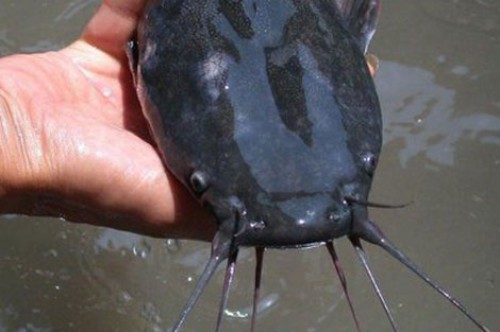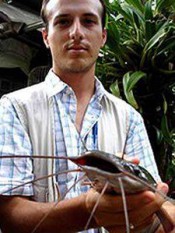Among Fish and Cats
by Orlando Luis Pardo Lazo and translated by Alex Higson / September 16, 2013 / No comments
As the population of catfish causes “ecological holocaust” in Cuba’s water, the government advises Cubans to “Eat up!”
The catfish has conquered Cuba. The Communist Party and Youth Wing newspapers are singing the praises of its soft, white flesh. However…

- Is it worth-while to focus on the last images and letters coming from the inside of the last living utopia on Earth? Is Cuba by now a contemporary country or just another old-fashioned delusion in the middle of Nowhere-America? A Cold-War Northtalgia maybe? Can we expect a young Rewwwolution.cu within that Ancien Régime still known as The Revolution? I would like to provoke more questions than answers.

- Orlando Luis Pardo Lazo was born in Havana City and still resides and resists there, working as a free-lance writer, photographer and blogger. He is the author of Boring Home (2009) and is the editor of the independent opinion and literary e-zine Voces.
The forced introduction of catfish to Cuba from Africa and Asia, in the late twentieth and early twenty-first century, can now be considered an ecological holocaust. The animals’ voracious appetite has wiped out countless freshwater animals on the island, in addition to non-aquatic species.
This breed of catfish, otherwise known as Clarias batrachus, or walking catfish, can weigh dozens of pounds and grow to a monstrous size. They are scavengers and, thanks to their ability to survive out of water for an extended period of time, all kinds of objects have been found in their stomachs: Spark plugs, marbles, coins, stones, plastic, the remains of vegetation, fish, amphibians, birds, rodents, and sometimes even feces. They will also devour one another when overcrowding occurs.
Sooner or later the Cuban Ministry of the Fishing Industry will have to respond to this irreparable idiocy on a national and international level. In the face of shortages of other sources of protein, the government has tried to provide the population with cheap meat, but many still find the texture and flavor of catfish disgusting and, in practice, even if they don’t have any other option, many buy catfish to feed their pets. (In particular cats, whose numbers were decimated during the Cuban famine of the 1990s, finally seem happy with the Revolution’s food policy.)
Although Cuba is surrounded by water, and our archipelago has more than 3,500 miles of coastline, the Cuban Fishing Fleet is a mere phantasm floating across the memory of the Caribbean Sea. Private fishermen came under suspicion for possibly smuggling people to Miami. Cuba is too close to the United States, where, paradoxically, catfish is treated as a delicacy: “God gives a beard to those who don’t have a jawbone,” is a common saying on the island, except that in this case the catfish has a moustache.






